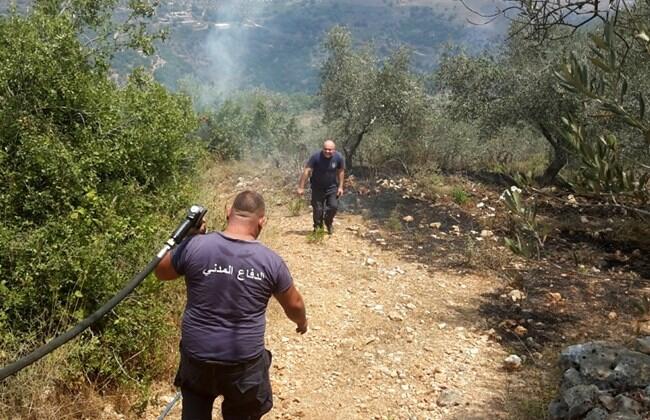The Zahrani power plant was entirely out of service Sunday morning after hot weather led to the separation of the plant’s only working gas unit from the main network, according to a source at the plant. The incident put areas supplied by the plant in total blackout for hours. The Zahrani plant provides power to Beirut as well as to some areas of Mount Lebanon and the south. Last month, Electricite du Liban announced that one of the plant’s two gas units was not working and required immediate maintenance. Replacement parts were brought from abroad, and the institution said it expected the plant to be operating at full capacity again by Saturday. However, the damaged gas unit is still out of service and will reportedly take days to get back up and running. Sunday’s issue with the second gas unit resulted in the whole plant being taken offline. The Zahrani plant had already been operating at reduced capacity, and the resultant power-rationing prompted angry citizens to block the main road of the Bawaba al-Fawqa neighborhood of Sidon with burning tires Saturday night. Rationing is now expected to be expanded. Many people opted to cool off at beaches and rivers Sunday. Others headed up to the mountains to escape the brutal heat. The hot summer weather is expected to continue through Thursday across the eastern basin of the Mediterranean, according to the evening weather forecast from Rafik Hariri International Airport’s Meteorological Department. Monday will see partly cloudy skies with high temperatures during the day. Starting in the afternoon, temperatures will drop gradually on the coast, but remain relatively high in the mountains and the Bekaa Valley, according to the bulletin. The Bekaa Valley could also see light rain. Temperatures will range between 25 and 33 degrees on the coast, 23 and 35 in the mountains, 19 and 29 in the Cedars, and 22 and 39 in the Bekaa. Tuesday will see similar weather, with partly cloudy skies, according to the department. Temperatures will range between 25 and 31 degrees along the coast, 23 and 30 in the mountains, 18 and 28 in the Cedars, and 24 and 38 degrees in the Bekaa Valley. Temperatures are expected to drop slightly Wednesday as the partly cloudy weather continues. The department said citizens should take measures to protect themselves from exposure to the summer sun and warned that the hot dry weather raises the risk of fire. High temperatures were a factor in several fires that swept the country. A huge fire erupted between south Lebanon’s Kfar Kila and Deir Mimas Sunday, according to the state-run National News Agency. Winds blew flames into an old olive orchard, making the blaze difficult for Civil Defense and Lebanese Army members to extinguish. Another fire broke out in a field in the Jbeil district, and the NNA also reported a blaze in a forest near Lebanese University’s Hadath branch in Baabda. Firefighters also battled blazes in the woods of Beino in Akkar, north Lebanon. Civil Defense, Army and UNIFIL members worked to extinguish yet another fire on the outskirts of Bint Jbeil’s Ain Ibl. The Daily Star











